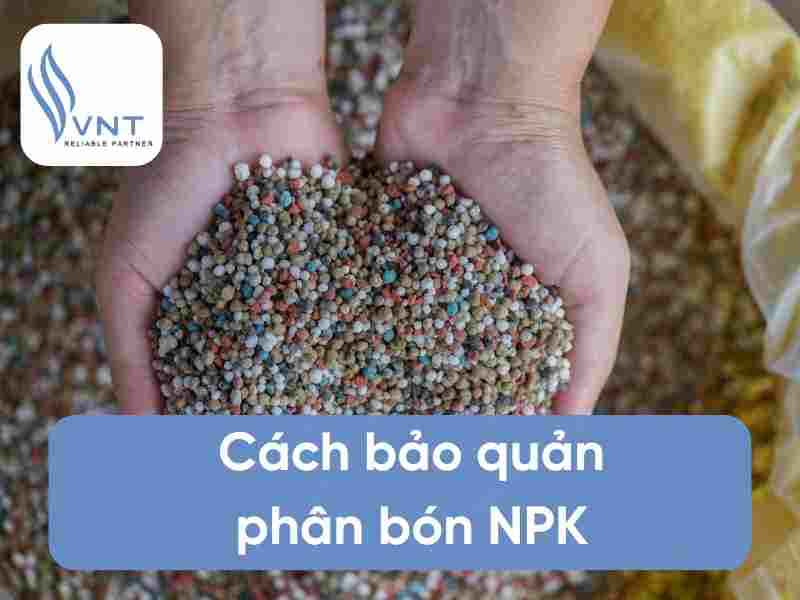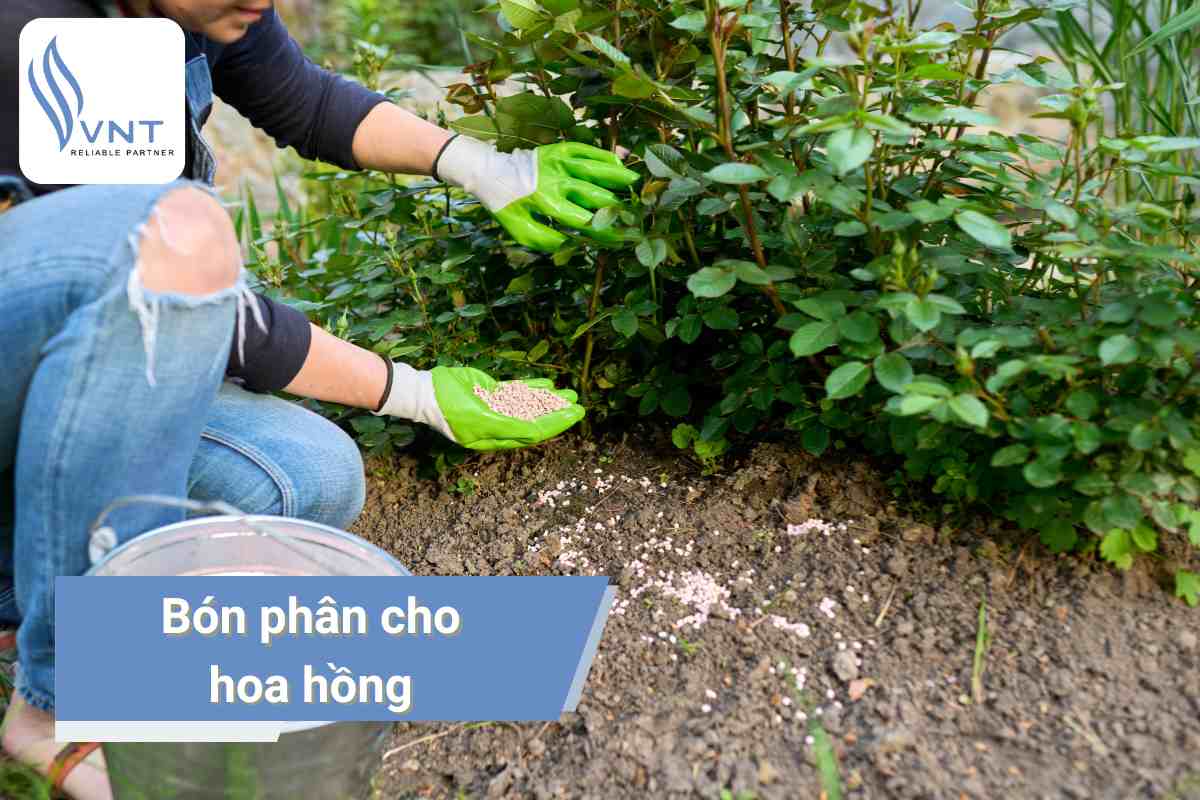Detailed instructions on how to compost food waste from A-Z
How to compost food waste is currently of great interest to many people. Every year, a large amount of food is thrown away, causing this valuable resource to go to waste. Composting food waste not only helps plants have more nutrients but also helps protect the environment. Let's find out more details with VNT Company in the article below.
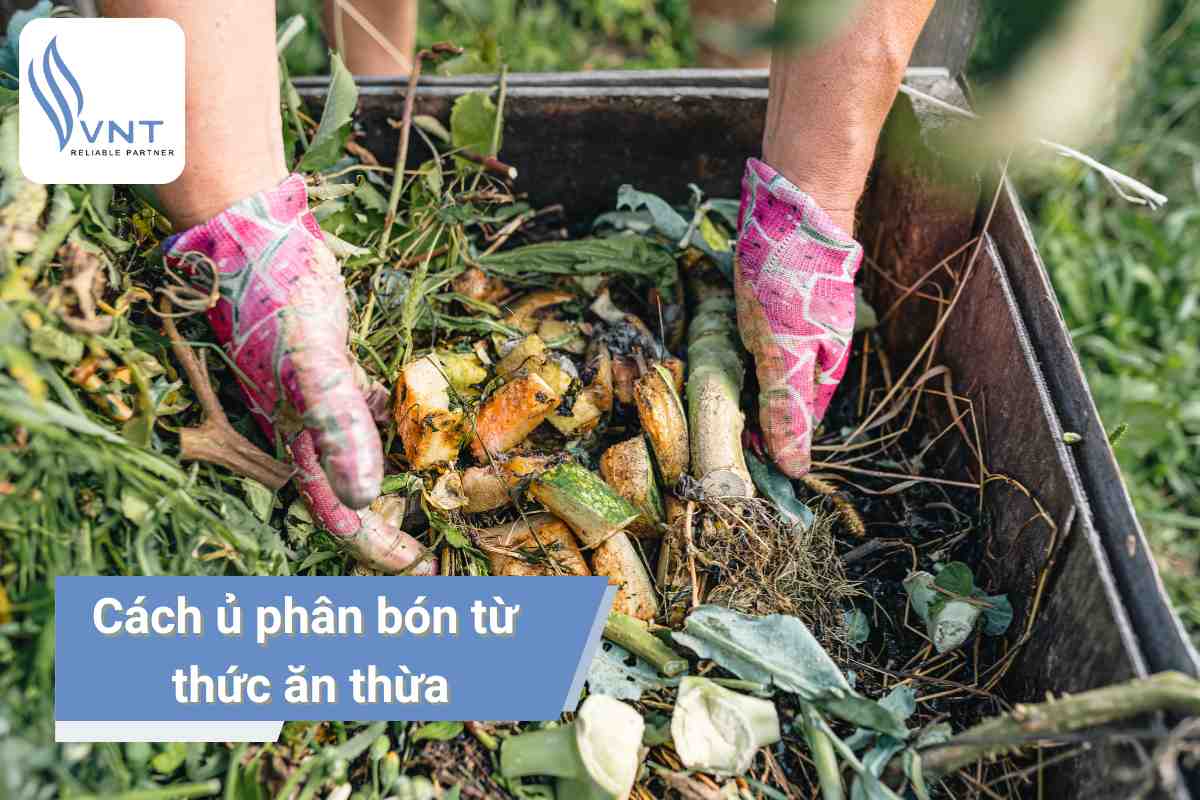
How to compost food waste
Ingredients needed to compost food waste
Before composting, you need to prepare some basic ingredients.
Here are some specific ingredients that can be used:
- Leftover vegetables: Vegetables that have wilted and have not been used for a long time.
- Fruit peels: Banana peels, orange peels, etc. contain many vitamins and minerals.
- Coffee grounds and tea grounds: An important source of nitrogen, helping plants grow.
- Eggshells: Calcium helps improve soil structure.
In addition to the above ingredients, you also need to prepare a biological preparation! This preparation will help the decomposition process take place faster. Biological preparations help enhance the growth of beneficial microorganisms. Thereby making our compost mixture stronger.
Another necessary factor is the container. You can use a styrofoam box or a plastic box with a lid to keep the composting process effective. This helps to reduce odors and prevent the appearance of insects, making our work much more convenient.
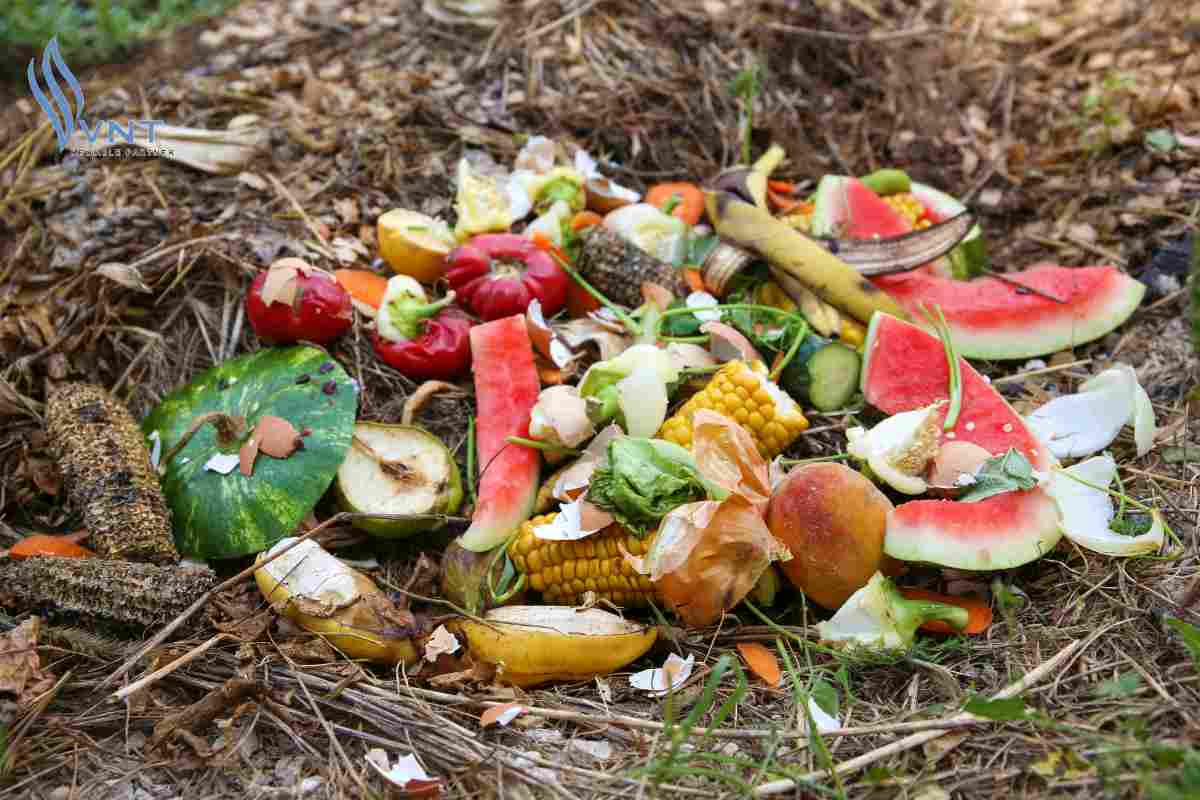
Ingredients for composting food waste
Steps to compost food waste
After preparing the ingredients, let's start the composting process.
The main steps include:
Step 1: Prepare the ingredients
The first step is very important, you should note the types of leftover food and wash them. In particular, if there are eggshells, crush them to speed up the decomposition process.
Step 2: Mix the ingredients
Next, we will put the ingredients in the container and mix them well. If you use biological products, don't forget to add them! Mixing well is like the process of blending the flavors in a dish, making them interact and create the best results.
Step 3: Compost
After mixing well, cover the container tightly and place it in a cool place, away from direct sunlight. Don't forget to stir daily to provide enough oxygen for microorganisms to work.
Step 4: Incubation time
Incubation time usually lasts from 2 to 4 weeks. When the mixture turns brown and smells earthy, it is done.
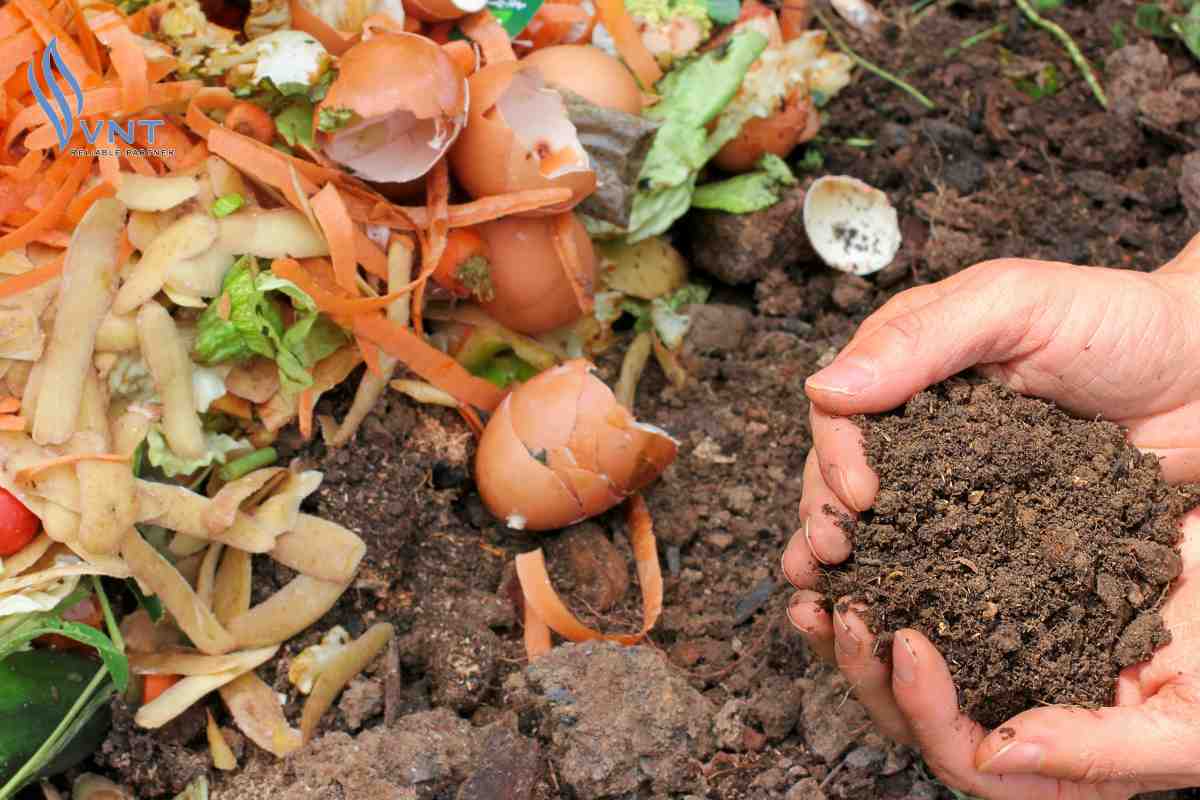
Steps to make compost from food waste
Methods of making organic fertilizer from food waste
There are many different methods to make organic fertilizer from food waste. Depending on the conditions and wishes of each person, we can choose the most suitable method.
Hot composting method
Known for its ideal temperature of 55-65°C, this method helps to quickly decompose food waste. The ingredients need to be crushed, mixed well with dry ingredients such as dry leaves or branches, adding beneficial microorganisms to enhance the decomposition process.
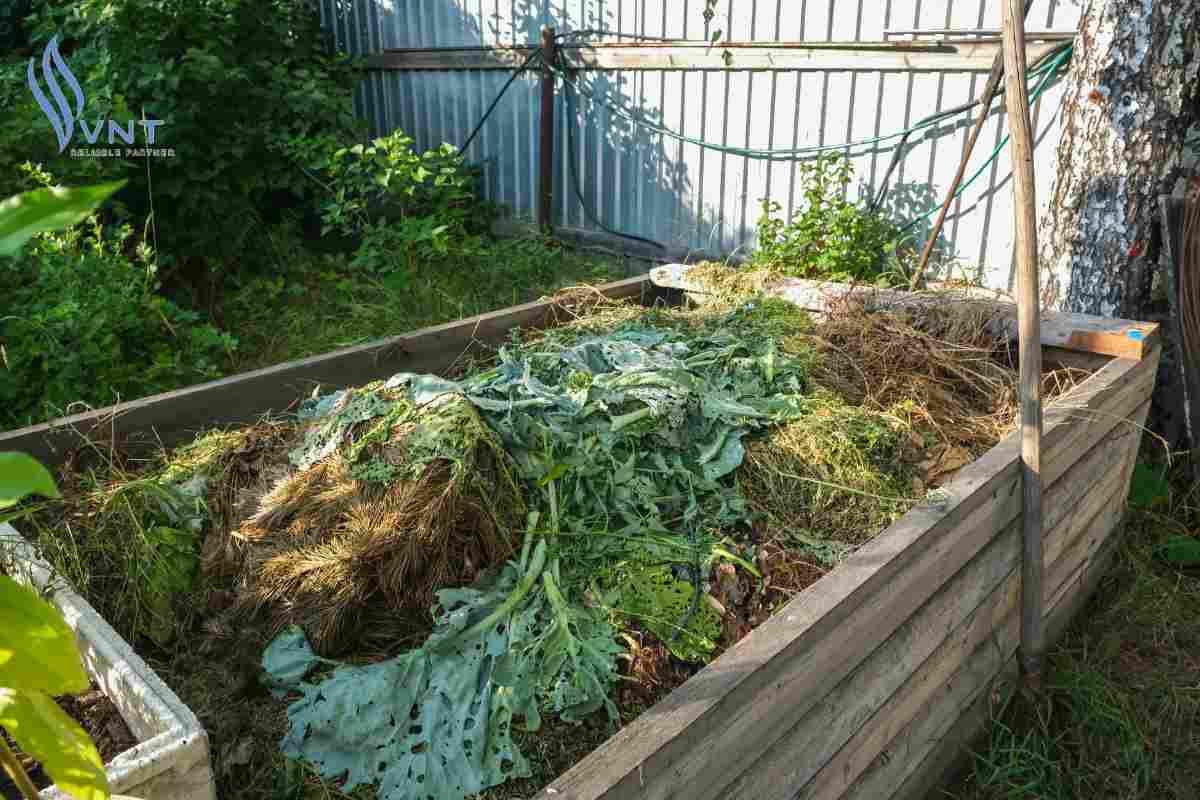
Hot composting method
Cold composting method
Using ambient temperature for composting, this method is suitable for busy people. Leftover food just needs to be left in the bin or compost pit without too much care. The decomposition time will be longer, which is understandable when compared to cooking a dish without fire.
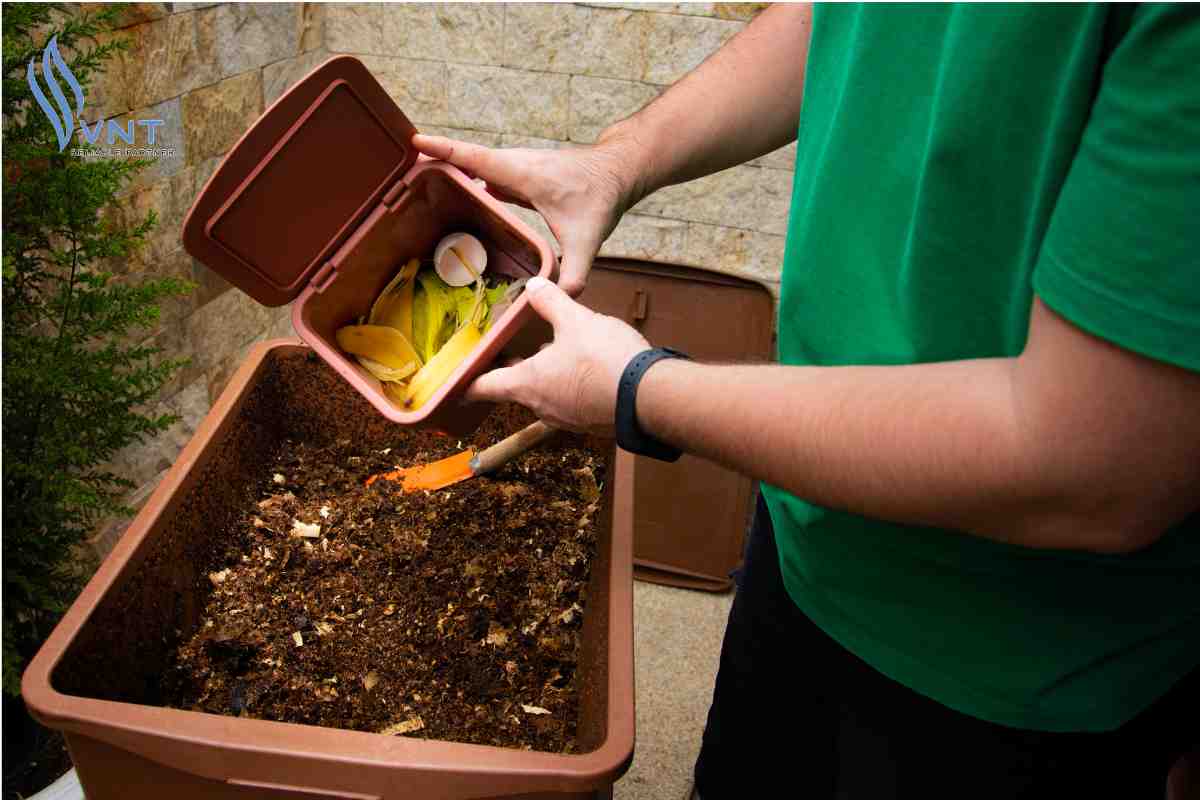
Cold Composting
Immersion Composting
Uses leftover materials such as vegetables, fruit peels and food waste. These materials are placed in a pit or bin and kept moist to facilitate the activity of microorganisms. Realize that everything needs to “breathe” and retain moisture to grow.
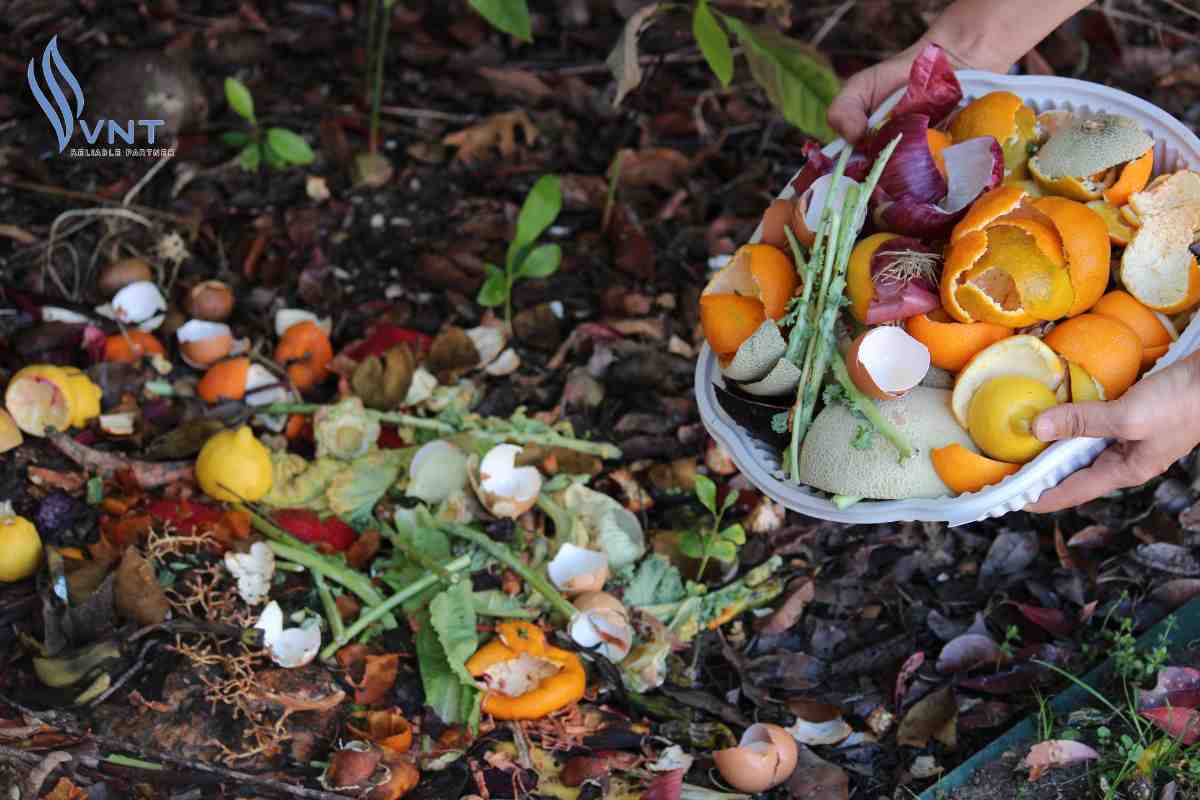
Submerged Composting Method
Notes When Composting Food Waste
When composting, there are some things you cannot ignore to ensure the best results.
- Avoid foods containing grease, meat and milk: These foods can attract insects and create bad odors. Imagine that just like you don't want to mix water with oil, these foods should not be "mixed" into fertilizer.
- Adjust the humidity: Humidity should be kept between 40-60% for microorganisms to grow well. You can use your hand to check the humidity of the mixture, just like cooking rice, you need to adjust the amount of water appropriately to complete a great dish.
- Regularly check and stir the mixture: Regularly checking and stirring the mixture helps it decompose evenly and quickly. Doing this is no different from taking care of a garden, where each sprout needs light and air to grow.
- Temperature control: The temperature during the composting process also needs to be monitored. Too high a temperature will kill beneficial microorganisms, while too low a temperature will slow down the composting process.
- Do not compost for too long: If left for too long, the compost may rot or not reach its best quality. Our house needs to be clean, do not let unpleasant odors appear.
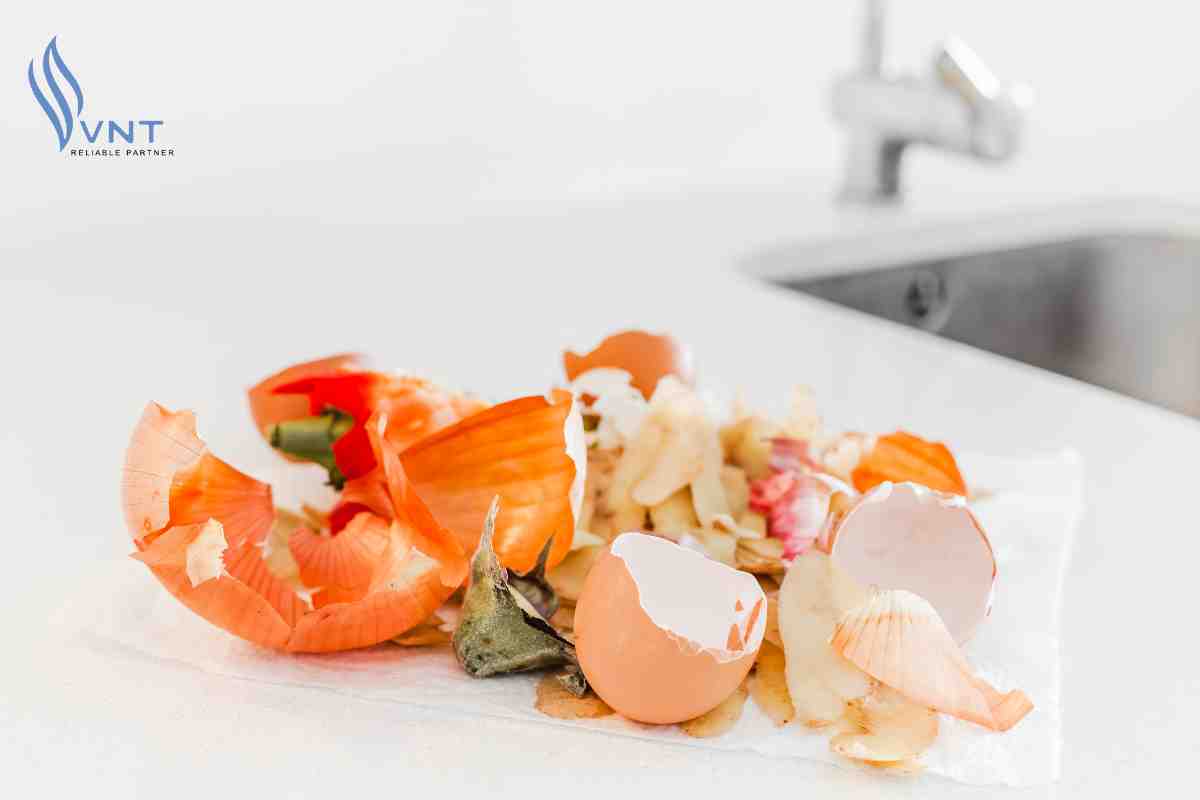
Notes when composting food waste
Common mistakes when composting food waste
During the composting process, some people often make common mistakes that lead to low efficiency. Early identification of these mistakes can help us save time and effort.
Here are some common mistakes that farmers often make:
- Not composting before use: Many people mistakenly think that they can directly fertilize food waste without composting. However, the results will not be as expected.
- Uneven fertilization: If the plants are not fertilized evenly, the plants will grow unevenly, leading to reduced productivity and quality.
- Fertilizing in hot weather: Hot weather can cause fertilizer to dry quickly, losing nutrients and beneficial microorganisms.
- Unbalanced amount of fertilizer: If there is no balance between brown and green materials, the quality of fertilizer will be reduced.
- Composting without humidity and temperature control: Too high or too low humidity, as well as unsatisfactory temperature, will adversely affect the decomposition process and the quality of the compost.
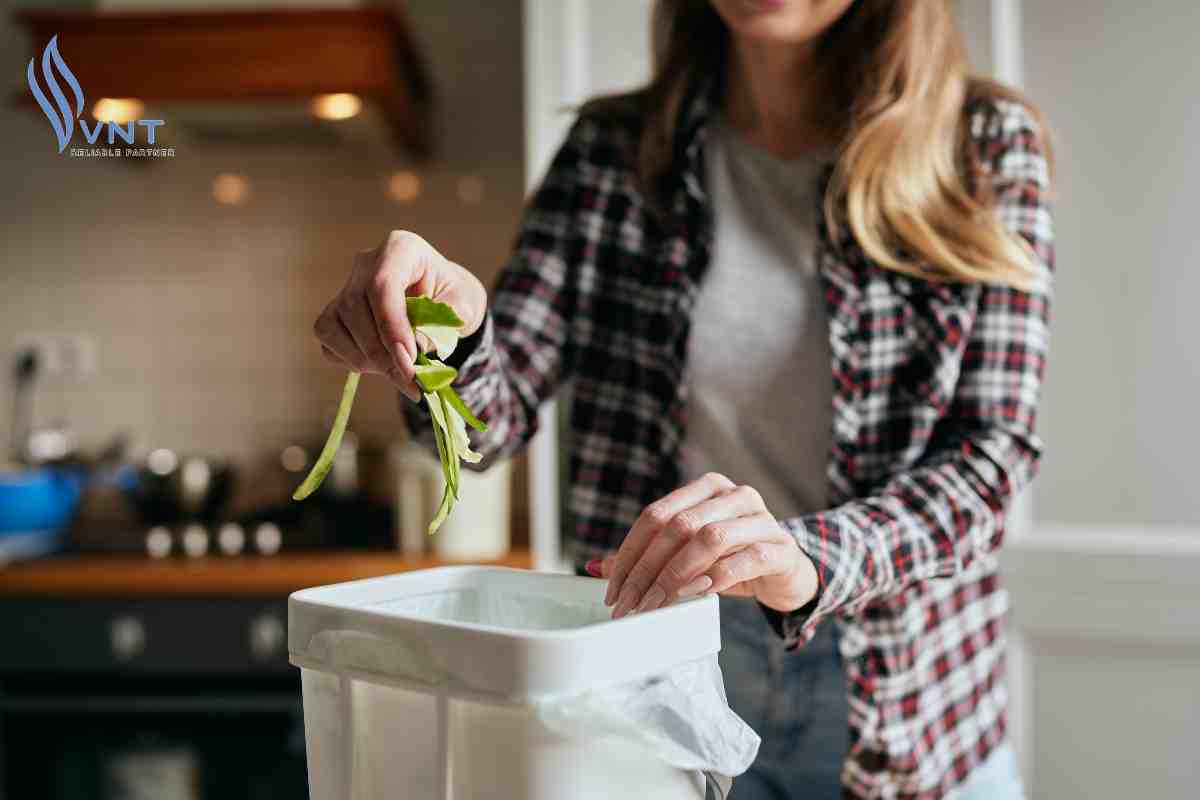
Common mistakes when composting food waste
How to use composted food waste for plants
Once you have completed the composting process, let's learn how to use it effectively for plants.
- Take the compost from the bottom of the compost bin: Composted organic fertilizer is often used from the bottom layer, where it decomposes best. This is like the "essence" distilled from all the ingredients, it only takes a little ingenuity to use.
- Pre-planting fertilizer: You can apply this fertilizer as a base fertilizer before planting. This fertilizer mixture will add necessary nutrients to the soil, helping plants grow strongly from the beginning.
- Periodic top dressing: In addition to base dressing, composted fertilizer also needs to be top dressing periodically, about every 20 days. Top dressing is like providing additional "food" for plants, helping plants to always maintain their vitality and not lack nutrients.
- Depending on the type of plant: It should be noted that each type of plant may require different usage. Therefore, information about the growth and nutritional requirements of each type of plant is also very important.
- Monitoring the growth: During the process of caring for the plant, regularly observe the growth of the plant. This helps to adjust the amount of fertilizer in a timely manner to achieve the most optimal efficiency.
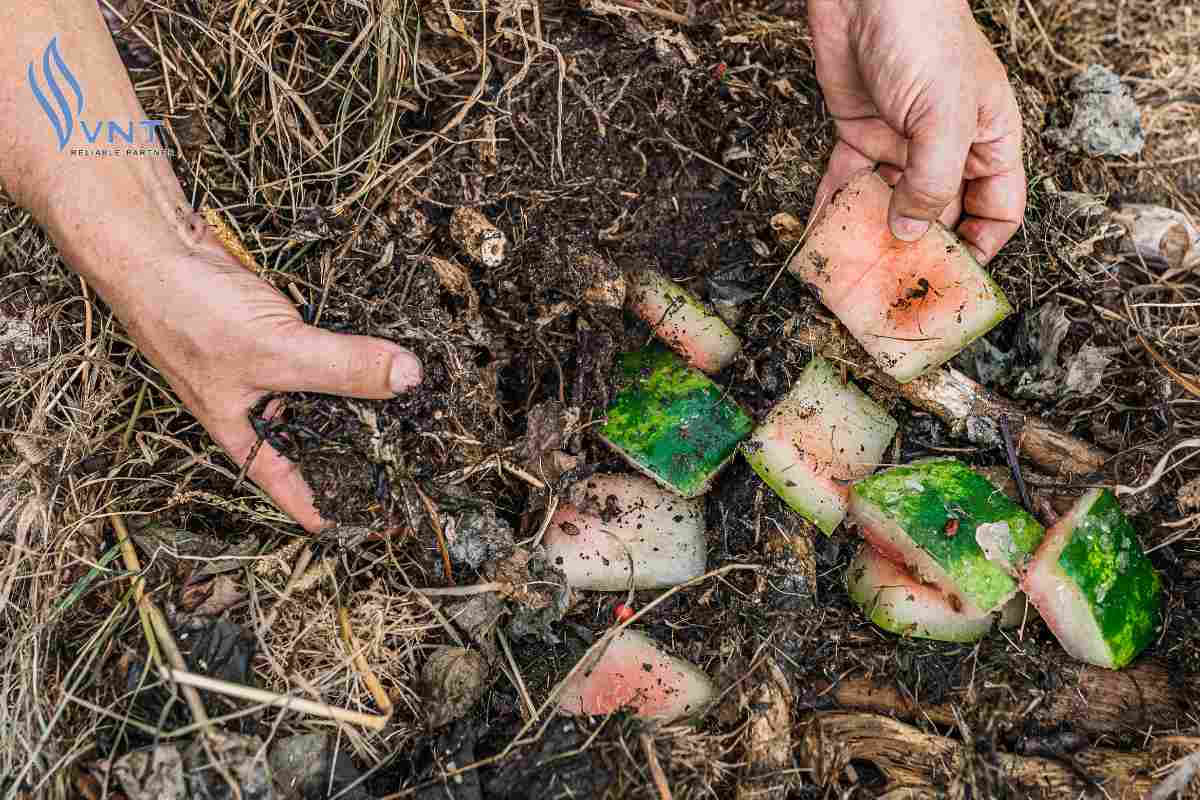
How to use compost for plants
How long does it take to compost food waste?
One of the questions many people ask when starting to compost food waste is the composting time. This time is very important, because it affects the quality of the fertilizer we make.
Composting time depends on both the type of raw material and the composting conditions. Normally, this process lasts about 15 to 30 days.
Some signs when the fertilizer is effective:
- Monitor the color: The fertilizer is considered successful when all the raw materials turn brown, have a fine crumbly texture, and smell of soil.
- Smell of soil: Not only color, the smell of soil is also an important factor to identify. An ideal compost pit or bin should have a fragrant smell of soil, without a foul odor.
- Time may vary: Some materials such as food waste may decompose faster than eggshells.
- Environmental factors: In addition, temperature and humidity also greatly affect the incubation time. Ideal environmental conditions will promote this process to become faster.
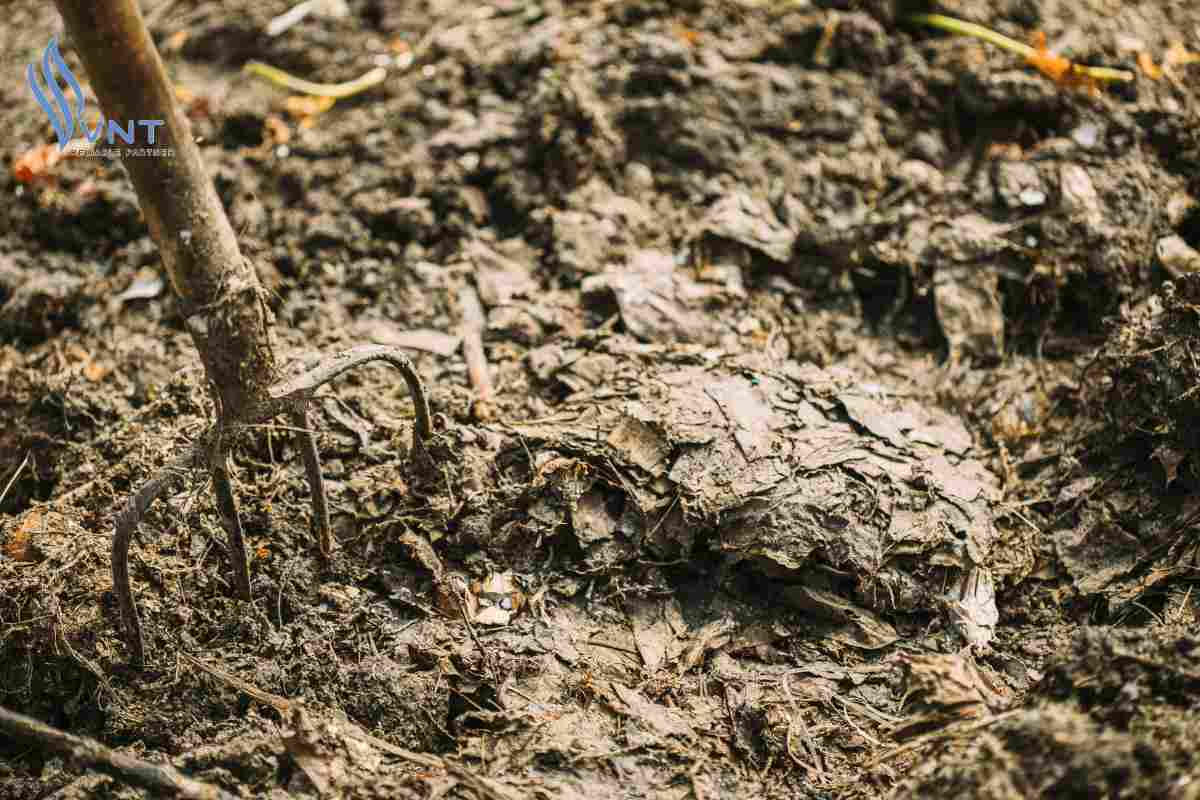
How long does it take to compost food waste?
Types of food waste that should and should not be used for composting
Choosing food waste for composting also plays an important role in the quality of the fertilizer. There are foods that help the composting process quickly and effectively. At the same time, there are also types that you should completely avoid.
Foods that should be used
Foods that should be used:
- Banana peels: Banana peels are not only rich in potassium but also provide essential micronutrients for plants.
- Eggshells: Rich in calcium, eggshells help improve soil structure.
- Coffee grounds: Provide nitrogen and help increase soil porosity. Coffee grounds are like nutritious seeds, providing energy for plant growth.
- Rotten fruit: Provide nutrients, increasing the nutritional value of fertilizer.
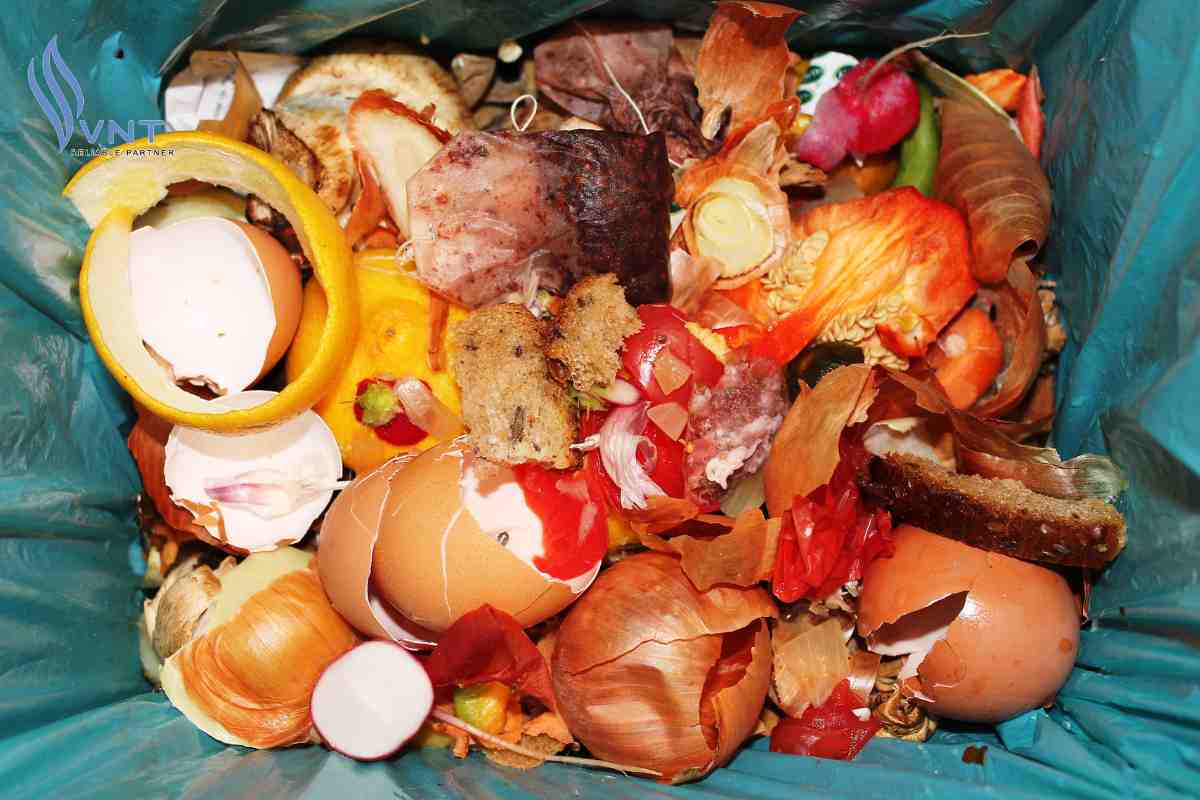
Foods to Compost
Foods to Avoid
Foods to Avoid:
- Meat scraps and dairy products: These foods can attract pests and create unpleasant odors.
- Grease: Absolutely avoid, as they can pollute the soil and hinder the decomposition process.
- Processed foods: Contain chemical additives that are not good for the soil.
- Fish bones or meat: Can make the compost go bad and cause unpleasant odors.
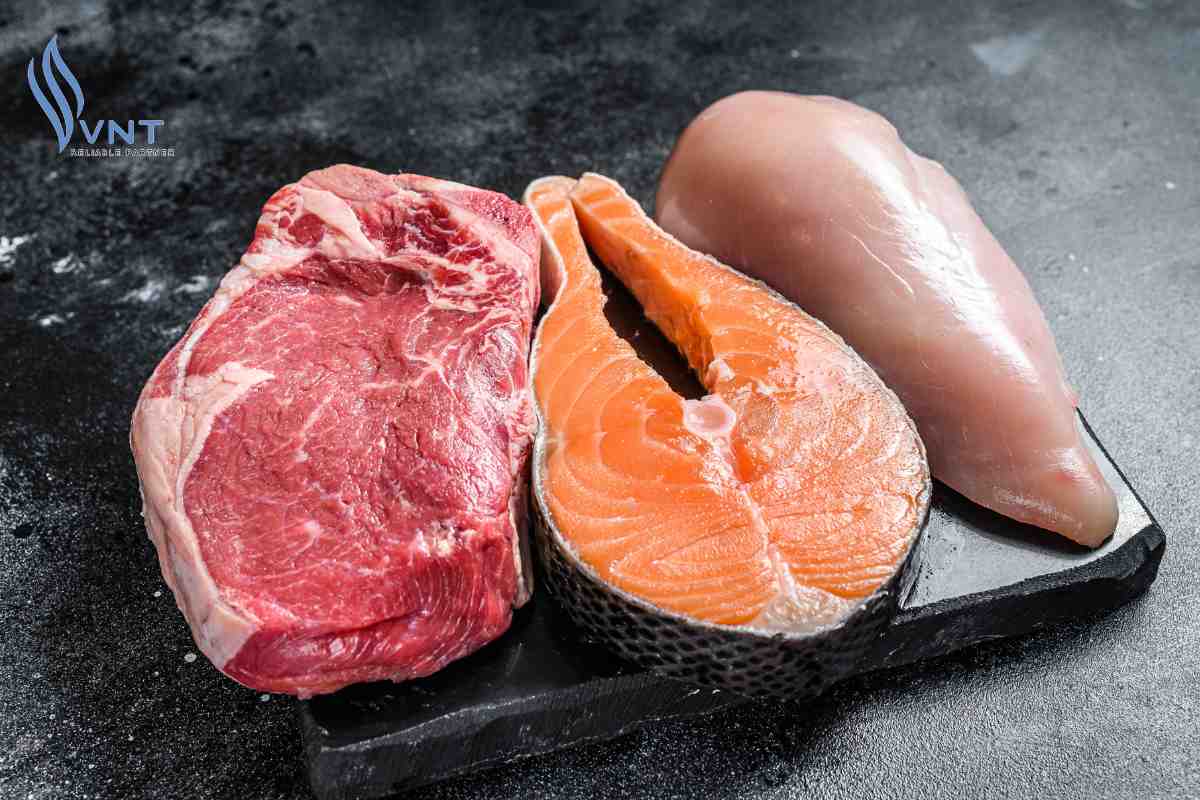
Foods that should not be composted
Benefits of composting food waste for the environment
Composting food waste is not only beneficial for plants, but also brings many great benefits to the environment.
- Reduce household waste: Each person can throw away about 1kg of waste per day, leading to about 90 million kg of waste nationwide every day. Importantly, composting helps reduce pressure on landfills, while keeping the air clean.
- Reduce greenhouse gas emissions: The natural decomposition of organic fertilizers helps reduce greenhouse gases. Batches of fertilizer can be produced from food waste, minimizing toxic emissions into the environment.
- Improve soil quality: Composting food waste not only adds nutrients to plants but also prevents soil erosion.
- Prevent nutrient leaching: Using compost from food waste prevents nutrient leaching, protecting the sustainability of the ecosystem.
- Forming environmental protection habits: Composting food waste not only creates a natural source of fertilizer but also raises public awareness of environmental protection.
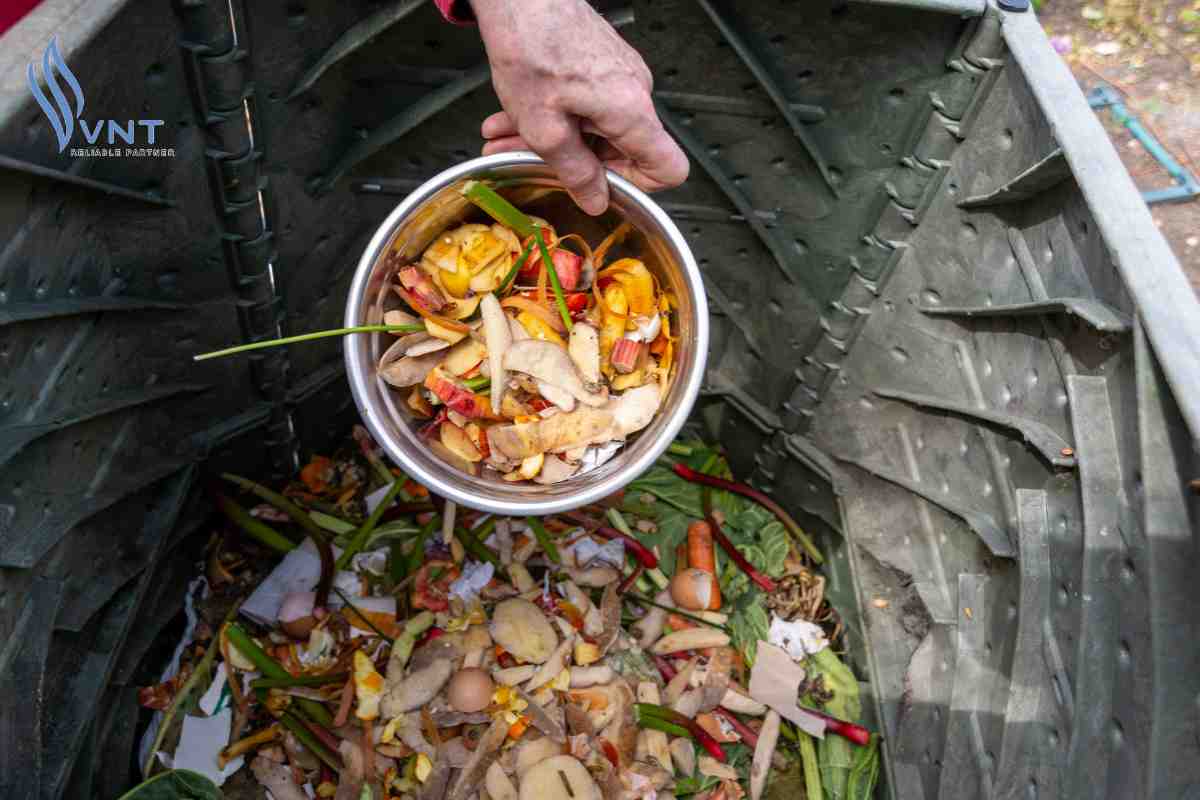
Benefits of composting fertilizers for the environment
Conclusion
Composting fertilizers from leftover food not only helps plants have an additional source of nutrients but is also good for the environment. From simple ingredients such as leftover vegetables, fruit peels or coffee grounds, we can create a source of quality organic fertilizers. Hopefully the article brings readers useful information.
You are looking to buy quality organic and inorganic fertilizers from reputable brands in the world. VNT Company is the top choice for you. VNT provides all kinds of organic and inorganic fertilizers for plants.
Advantages of buying at VNT:
- Distributing, importing and exporting all kinds of fertilizers for all types of plants.
- Always ensure timely support for you in the process of production and cultivation.
- A team of professional, experienced staff, always on hand to answer all questions when customers.
- Continuously improving and upgrading with careful investment in equipment, machinery, and warehouse scale.
VNT Chemicals is always a reliable address, Always bringing value to customers. Contact for more details
VNT IMPORT EXPORT TRADING JOINT STOCK COMPANY
Business registration number 0104188003 issued by the Department of Planning and Investment of Hanoi on September 30, 2009
Address: Hamlet 3, Hai Boi Village - Hai Boi Commune - Dong Anh District - Hanoi.
HN Office: Room 1304, CT2-VIMECO Building, Nguyen Chanh, Trung Hoa, Cau Giay, Hanoi.
HCM Office: No. 68B, Nguyen Van Troi, Phu Nhuan District, Ho Chi Minh City.
Hotline 1: 0904616638
Hotline 2: 02466543183
Email: tuyennv@vntradimex.com



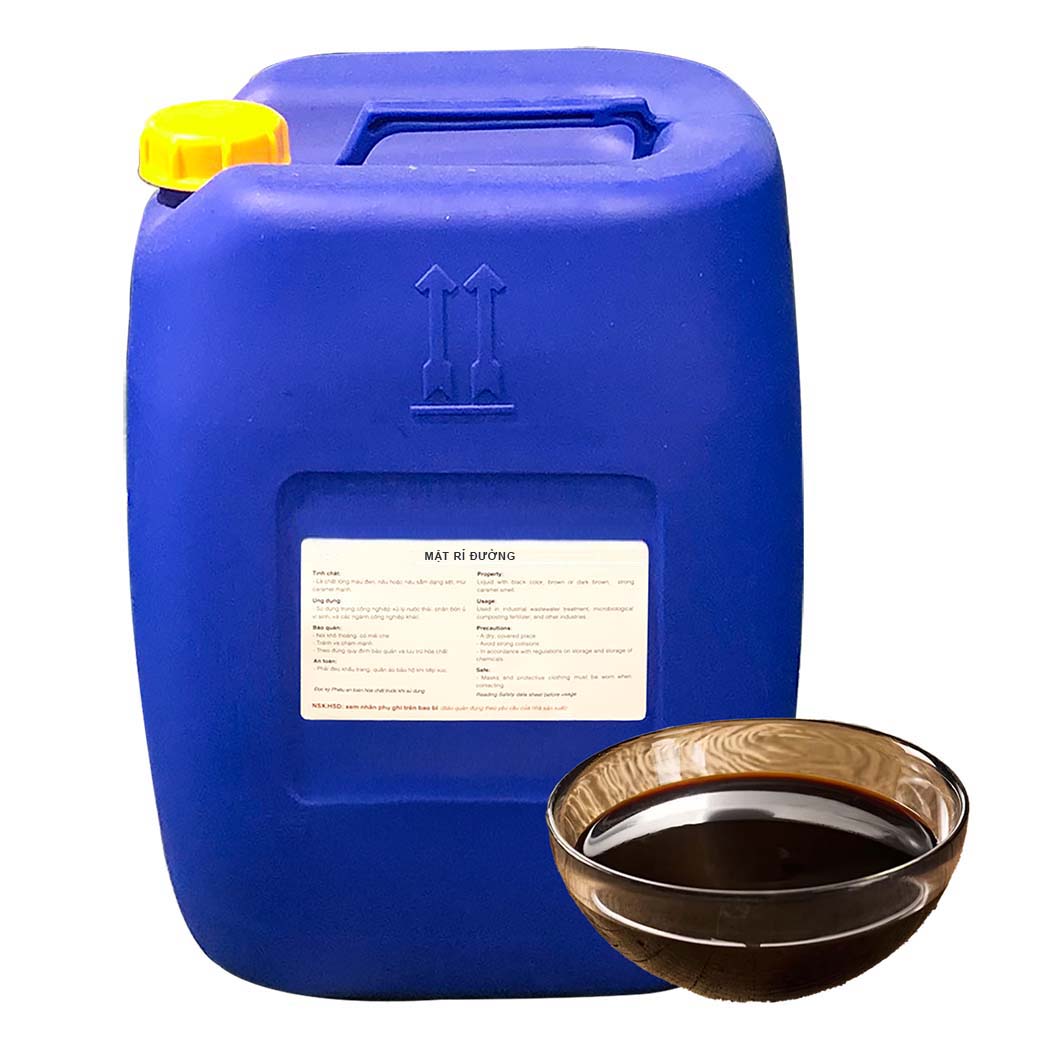
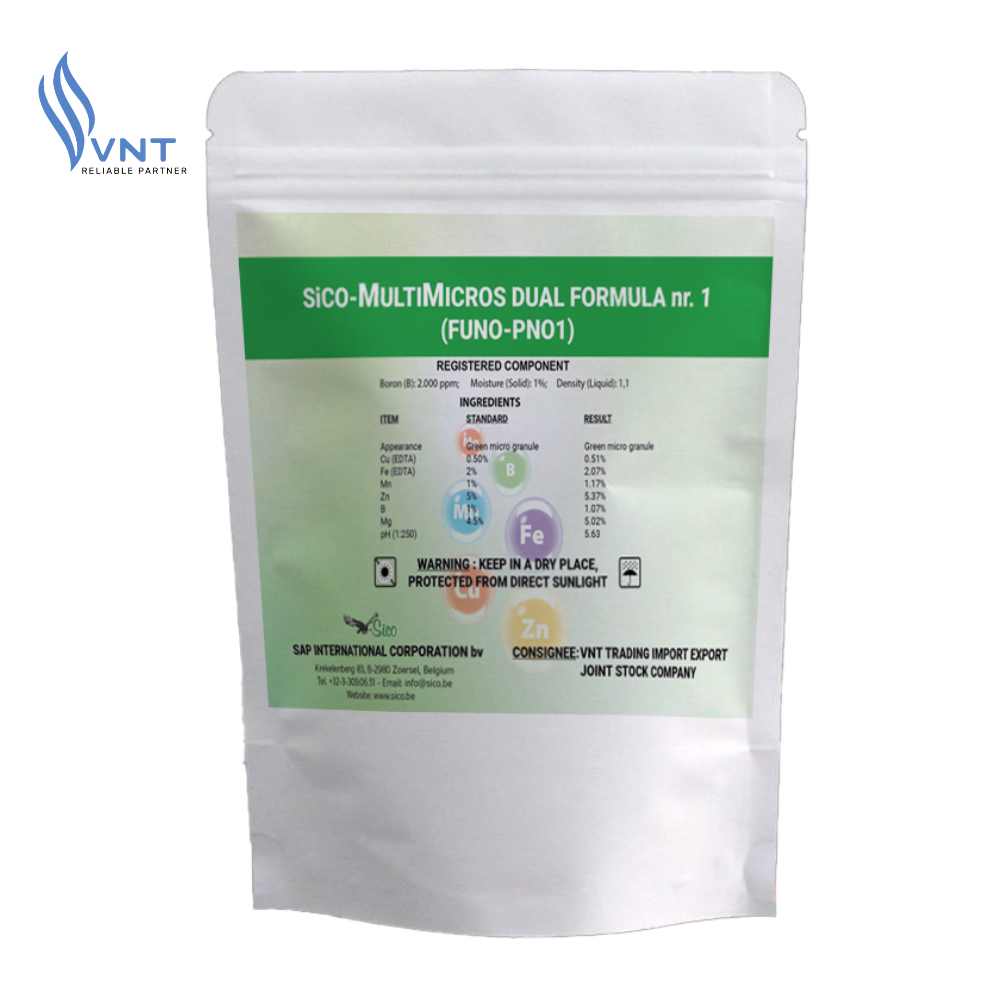
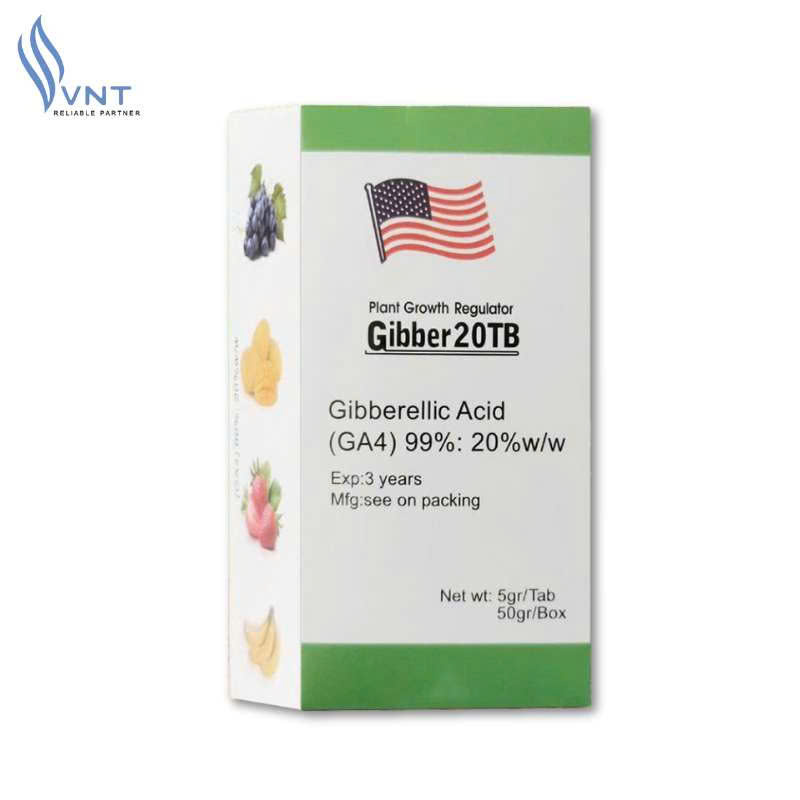
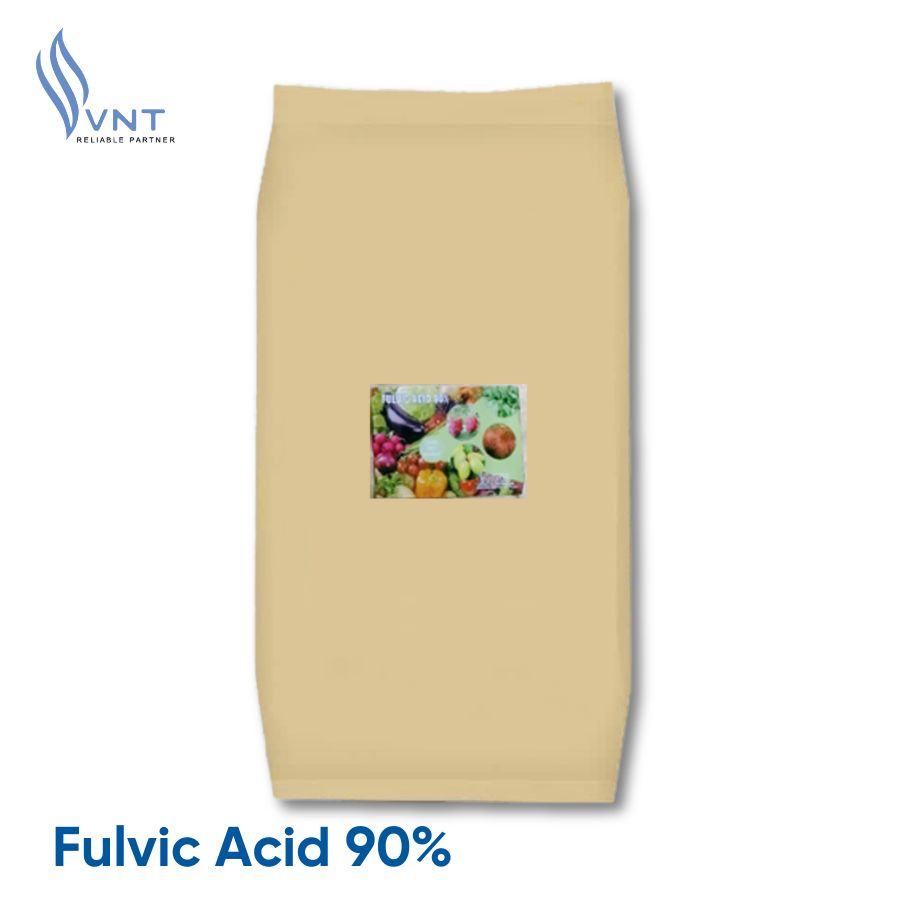
![[Q&A] How Long After Applying NPK Fertilizer Can You Eat Vegetables?](https://vntradimex.com/public/files/news/bon-phan-npk-cho-rau-bao-lau-thi-an-duoc-685e204cde416.jpg)
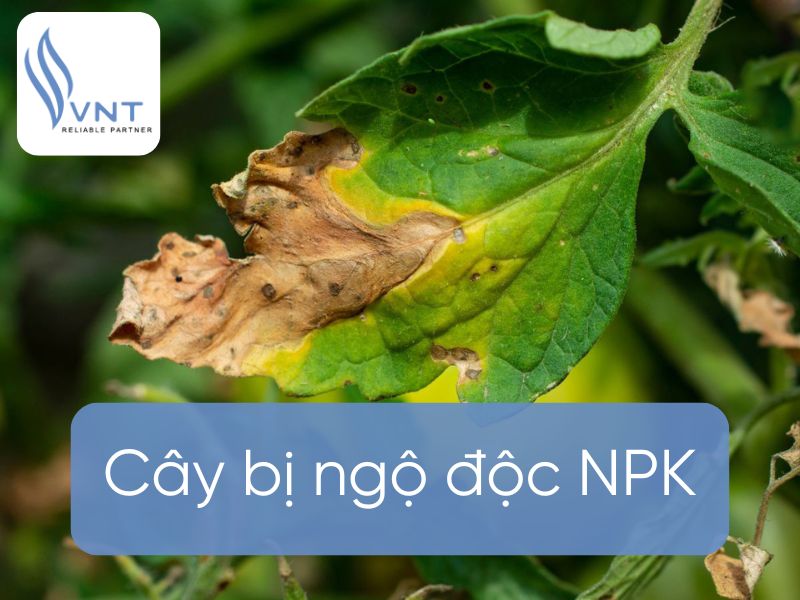
![[SHARE] How to use NPK fertilizer properly that everyone should know!](https://vntradimex.com/public/files/news/cach-dung-phan-bon-npk-dung-cach-682c46ab907d2.jpg)
